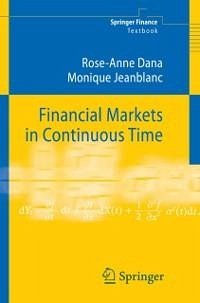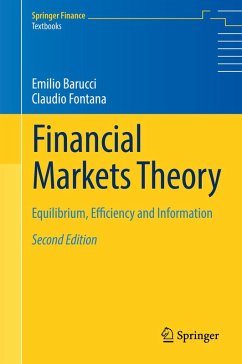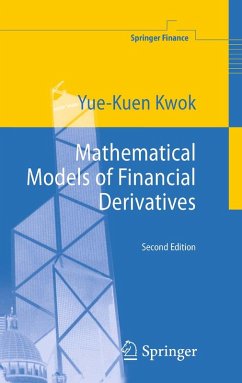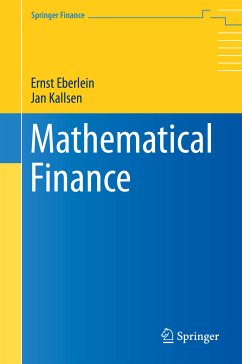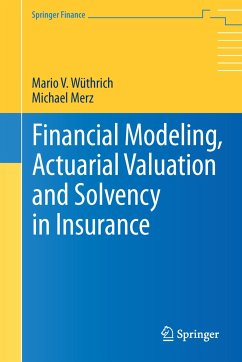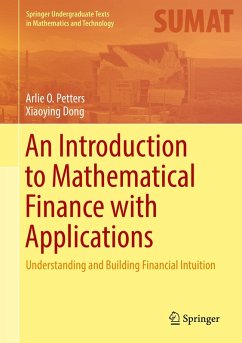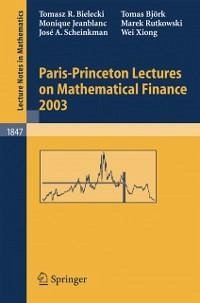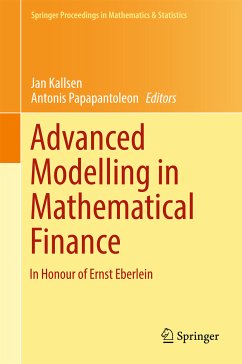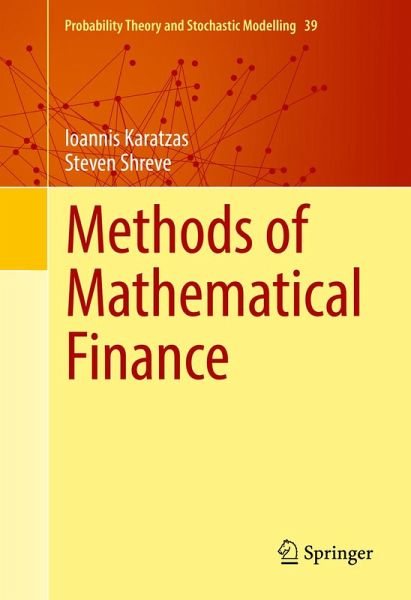
Methods of Mathematical Finance (eBook, PDF)
Versandkostenfrei!
Sofort per Download lieferbar
104,95 €
inkl. MwSt.
Weitere Ausgaben:

PAYBACK Punkte
52 °P sammeln!
This monograph is a sequel to Brownian Motion and Stochastic Calculus by the same authors. Within the context of Brownian-motion-driven asset prices, it develops contingent claim pricing and optimal consumption/investment in both complete and incomplete markets. The latter topic is extended to the study of complete market equilibrium, providing conditions for the existence and uniqueness of market prices which support trading by several heterogeneous agents. Although much of the incomplete-market material is available in research papers, these topics are treated for the first time in a unified...
This monograph is a sequel to Brownian Motion and Stochastic Calculus by the same authors. Within the context of Brownian-motion-driven asset prices, it develops contingent claim pricing and optimal consumption/investment in both complete and incomplete markets. The latter topic is extended to the study of complete market equilibrium, providing conditions for the existence and uniqueness of market prices which support trading by several heterogeneous agents. Although much of the incomplete-market material is available in research papers, these topics are treated for the first time in a unified manner. The book contains an extensive set of references and notes describing the field, including topics not treated in the text.
This monograph should be of interest to researchers wishing to see advanced mathematics applied to finance. The material on optimal consumption and investment, leading to equilibrium, is addressed to the theoretical finance community. Thechapters on contingent claim valuation present techniques of practical importance, especially for pricing exotic options.
The present corrected printing includes, besides other minor corrections, an important correction of Theorem 6.4 and a simplification of the proof of Lemma 6.5.
Also available by Ioannis Karatzas and Steven E. Shreve, Brownian Motion and Stochastic Calculus, Second Edition, Springer-Verlag New York, Inc., 1991, 470 pp., ISBN 0-387- 97655-8.
This monograph should be of interest to researchers wishing to see advanced mathematics applied to finance. The material on optimal consumption and investment, leading to equilibrium, is addressed to the theoretical finance community. Thechapters on contingent claim valuation present techniques of practical importance, especially for pricing exotic options.
The present corrected printing includes, besides other minor corrections, an important correction of Theorem 6.4 and a simplification of the proof of Lemma 6.5.
Also available by Ioannis Karatzas and Steven E. Shreve, Brownian Motion and Stochastic Calculus, Second Edition, Springer-Verlag New York, Inc., 1991, 470 pp., ISBN 0-387- 97655-8.
Dieser Download kann aus rechtlichen Gründen nur mit Rechnungsadresse in A, B, BG, CY, CZ, D, DK, EW, E, FIN, F, GR, HR, H, IRL, I, LT, L, LR, M, NL, PL, P, R, S, SLO, SK ausgeliefert werden.



